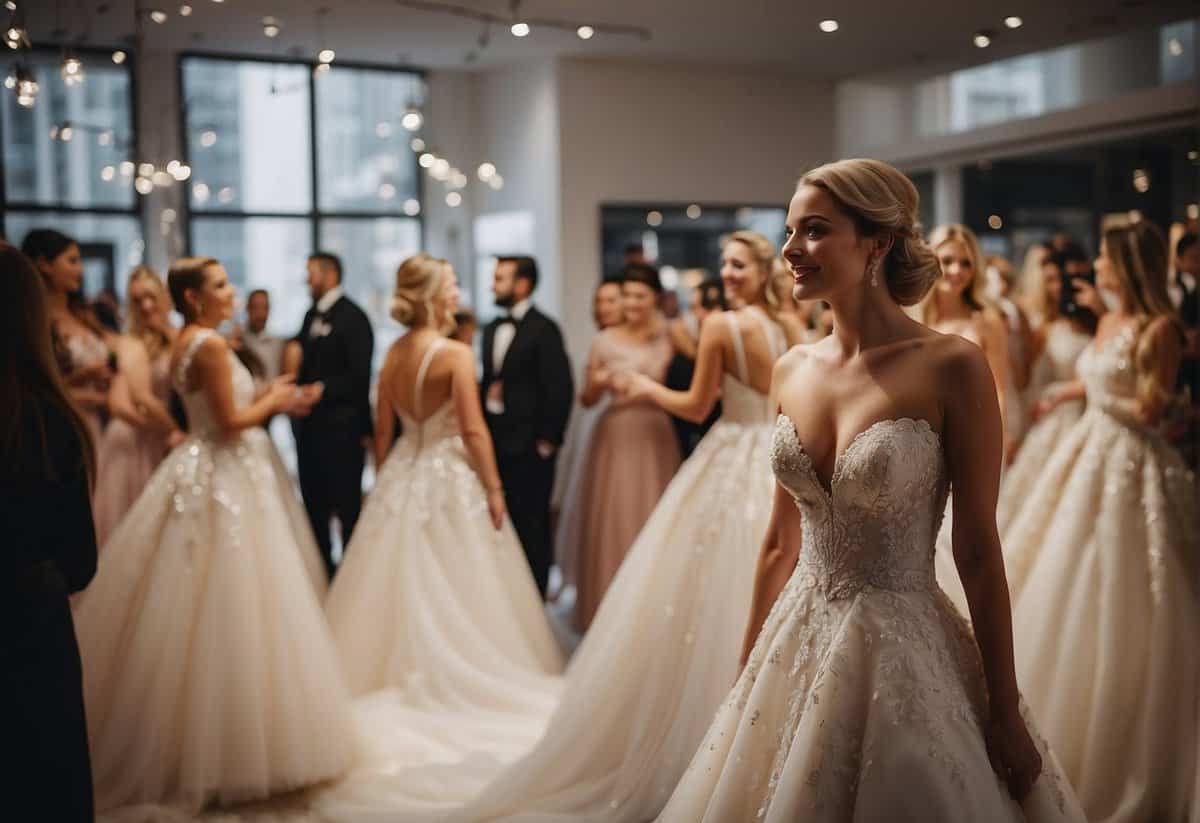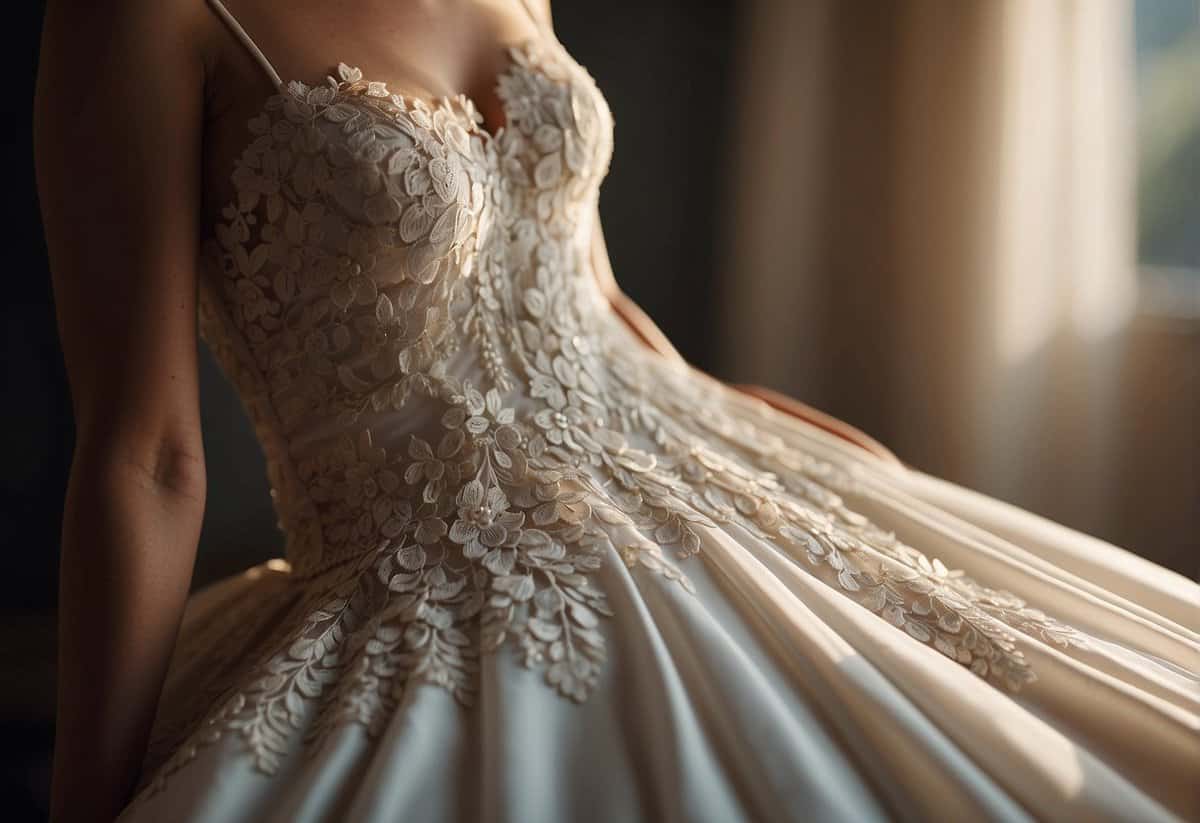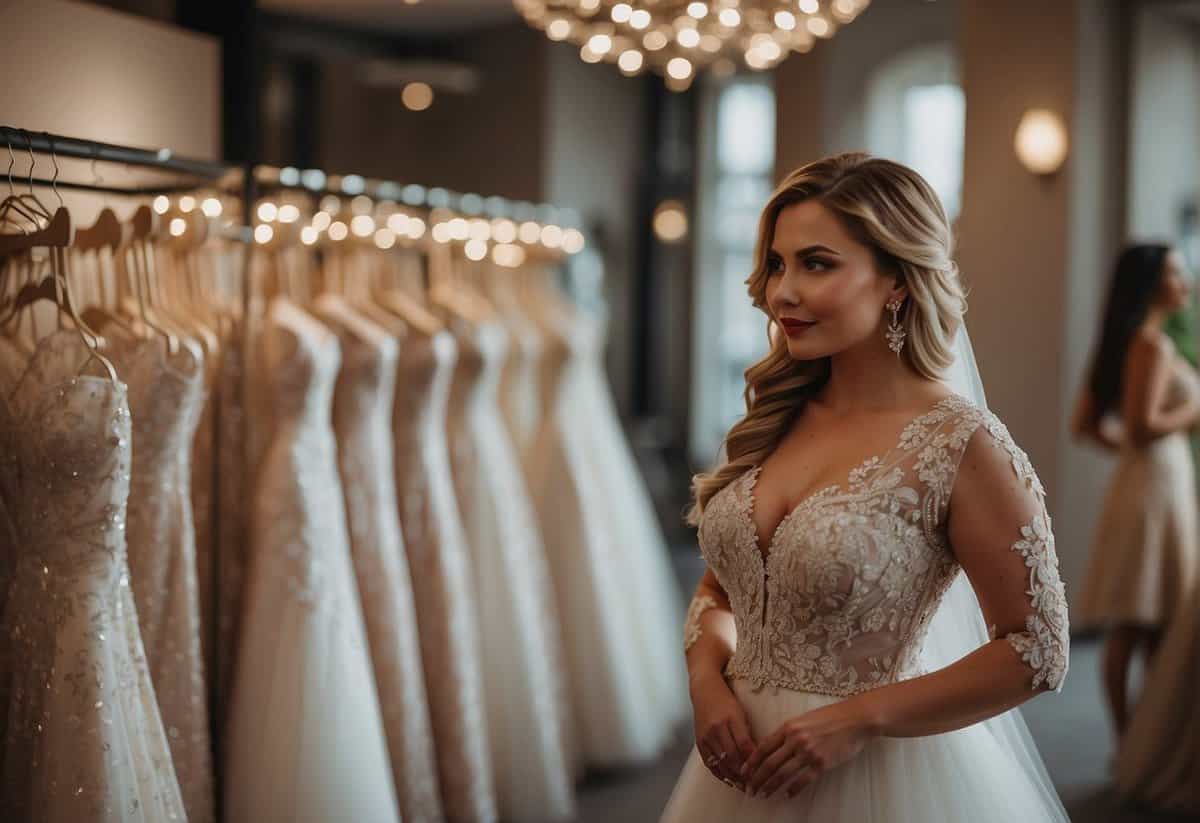Why Do People Spend So Much Money on Wedding Dresses? Understanding the Splurge on Bridal Gowns
When it comes to a wedding, the dress often becomes a central symbol of the celebration, representing far more than just an outfit for a special occasion. Many brides view their wedding dress as a reflection of their personality, style, and the gravity of a lifelong commitment they are about to make. This emotional significance can drive individuals to allocate a substantial portion of their wedding funds to securing that perfect gown, the one that transforms them and, in a way, sets the tone for the entire day.

Budgeting for a wedding can be a complex undertaking, and the cost of wedding attire often consumes a significant part of this budget. The rationale behind such spending can stem from tradition, the influence of family and friends, and the pursuit of a once-in-a-lifetime experience. Yet, amidst the excitement, balancing desires with financial practicality becomes a challenge for many. While the allure of luxurious fabrics, designer labels, and custom fittings is strong, alternatives to this typical expenditure are gaining popularity, offering different avenues for brides to express their individuality without exceeding their means.
Key Takeaways
- The wedding dress is emotionally significant and can reflect a bride’s identity.
- Wedding budgets often prioritize the cost of a dress due to various factors.
- Brides are exploring alternative options to manage wedding dress expenses.
The Emotional Significance of Wedding Dresses

Your wedding dress is more than just a garment; it’s a symbol of love, tradition, and the beginning of a new family chapter.
The Role of Tradition and Culture
Tradition and culture often dictate that on your wedding day, you embody the epitome of grace and beauty. As a bride, this moment holds a profound significance. The choice of fabric, whether it’s lace, silk, or another luxe material, is imbued with the hopes and expectations of your family and cultural heritage. Wearing a dress made from such materials isn’t just about indulgence; it represents a connection to the past and respect for the customs that have been held dear by generations before you.
Capturing the Perfect Picture
Your wedding day is an occasion filled with moments that become the memories you cherish, captured forever in stunning pictures. In these images, your dress plays a crucial role. As you immortalize the joy and emotional depth of this special day, every detail of your gown—from the intricate lacework to the flow of silk—works in harmony to create the perfect snapshot. These images will adorn the walls of your home, evoke memories, and be treasured for lifetimes, showcasing the beauty and splendor that you, as a bride, brought to the occasion.
Factors Influencing the Cost of Wedding Attire

When you’re searching for the perfect wedding dress, you might wonder why some gowns have such a high price tag. Several key factors contribute to the cost, from the quality of materials to the reputation of the designer.
Material and Workmanship
The fabric used in your wedding dress plays a significant role in the overall cost. Luxurious materials like silk, satin, and handmade lace typically have a higher price due to their quality and the intricate process required to make them. Additionally, the level of workmanship—such as detailed beadwork, embroidery, or hand-stitched elements—can substantially increase the price tag. Each gown’s unique elements require hours of labor, and this craftsmanship is reflected in the cost.
Designer Reputation and Brand
Purchasing a dress from a renowned designer often comes with a premium. Designers with a well-established reputation and brand are able to command higher prices for their designs. These gowns are not just pieces of clothing but are considered works of art that carry the prestige of the designer’s name.
Bridal Shop and Inventory Costs
Lastly, the bridal shop where you purchase your dress has expenses that factor into the cost of your attire. Shops must deal with inventory costs, including storage, handling, and alterations. These dresses are often made-to-order or kept in limited stock to maintain exclusivity, which can drive up the cost as well. The personalized experience, expert advice, and atmosphere you encounter at a bridal boutique also play a part in the pricing of their gowns.
Wedding Budget Management

Managing your wedding budget involves mindful allocation of funds and a clear understanding of your priorities. It’s about finding the balance between what you want and what you can afford, making sure the dress, venue, and other essentials reflect your special day without overspending.
Allocating Funds Across Wedding Necessities
When you’re planning your wedding, you’ll need to distribute your budget across various wedding necessities. Your budget should cover everything from the venue to the florist, decor, and other services. Here’s a simple guide on how to allocate your funds:
- Venue and Catering: Typically, this can consume up to 50% of your total budget, given that the location and food are central to your celebration.
- Photography and Videography: Set aside about 10-12% for capturing your memories professionally.
- Attire: Allocate around 7% for your wedding dress and suit, including accessories like shoes and jewelry. Real Couples’ Data shows this percentage in action.
- Decor and Florist: About 8-10% can be appointed to creating the aesthetic through flowers and decorations.
- Entertainment: Dedicate around 5-7% for music and entertainment to keep your guest list engaged.
Remember, these percentages are starting points; adjust them based on your specific wedding costs and preferences.
Understanding and Setting Priorities
To ensure a well-managed wedding budget, discern your priorities early on:
- Create a Must-Haves List: Decide the non-negotiables with your partner. Whether it’s a dream venue or a designer dress, knowing these will guide your decisions.
- Be Realistic: Once you have your must-haves, assign realistic numbers. For instance, if a top-tier photographer is crucial for you, perhaps scale back on other less important areas like elaborate decor.
- Track Spending: Monitor expenses by keeping all your wedding money in a dedicated account. This will help you to Stick to Your Wedding Budget and adjust allocations as needed.
By manipulating these variables according to what’s most important to you, you can maintain control over your wedding budget without compromising your vision. Consider using budgeting tools or apps to keep you on track along the way.
Alternatives to Traditional Wedding Dress Spending

Finding an affordable wedding dress that makes you feel like a million bucks doesn’t mean you have to spend that much! Here, we’ll explore savvy solutions that can significantly trim the costs associated with choosing that perfect gown.
Rental Options and Pre-Owned Dresses
Rather than spending a fortune on a dress you’ll only wear for one day, consider renting a wedding dress. Rental options can offer you high-fashion dresses at a fraction of the purchase price. Rental companies provide a variety of styles, ensuring you find a dress that fits your personal taste and body type without breaking the bank. Pre-owned dresses are another economical option. You can find designer gowns that were once worn and cherished, now offered at reduced prices. It’s a choice that’s not only budget-friendly but also environmentally considerate.
Tailoring and Alterations for a Personal Touch
Adding tailoring and alterations to a simpler, less expensive gown can make it uniquely yours. Whether you’re enhancing a hand-me-down, revamping a vintage find, or customizing a more modestly priced off-the-rack dress, alterations allow you to get the fit and style you want without the steep price tag often attached to bespoke dresses. Economists even suggest that making informed alterations is a wise example of the economic naturalist at work—applying principles of introductory economics to make cost-effective decisions for your big day.
Frequently Asked Questions

We understand that you may have many questions concerning the financial decisions behind wedding attire. Here, we’ve addressed some of the most common inquiries to help you navigate the intricacies of wedding dress expenses.
What motivates individuals to invest heavily in their wedding attire?
Your wedding day is seen as a uniquely special occasion, which often drives the desire to find a dress that reflects the significance of the event. Identifying with cultural or family traditions can also elevate the importance of a gown’s grandeur and, consequently, its cost.
How much is considered reasonable to spend on a wedding dress?
While budgets vary greatly, many individuals aim to allocate a specific portion of their overall wedding budget to their dress. It’s suggested that around 10 percent of the total wedding budget could be a starting point for establishing a reasonable dress budget.
What are the reasons behind the trend of costly weddings?
Costly weddings often stem from the desire to create a memorable and exclusive experience. Numerous factors contribute to this trend, including industry standards, vendor costs, and the complexity of event planning.
Can the value of a lavish wedding justify the expense?
Whether the value of a lavish wedding justifies the expense is personal and subjective. For some, the memories and experience are worth it; for others, the practicalities of budget may take precedence.
Why do people desire big and expensive weddings?
Many people seek big and expensive weddings due to the societal portrayal of the ideal wedding as a grand event. Constant depictions in media and social pressure can amplify expectations and desires for an extravagant celebration.
Are there benefits to spending less on a wedding dress?
Spending less on a wedding dress can offer several benefits, including reducing financial stress and allowing funds to be redirected towards other aspects of the wedding or life events, like a house or honeymoon. It can also reflect a preference for simplicity and practicality on your special day.


